Snow Lions, momo dumplings, kongpo dances: Tibetans keep their culture alive in Vermont
On Nov. 19, Burlington's O.N.E. Community Center was filled with the sights, sounds, and tastes of Tibet. Steam from pots of warm momo dumplings filled the air. A giant puppet of the celestial Snow Lion galloped across the stage. An ensemble of children plucked a string instrument called dramyin.
This was the 18th Tibet Festival held by the Tibetan Association of Vermont.
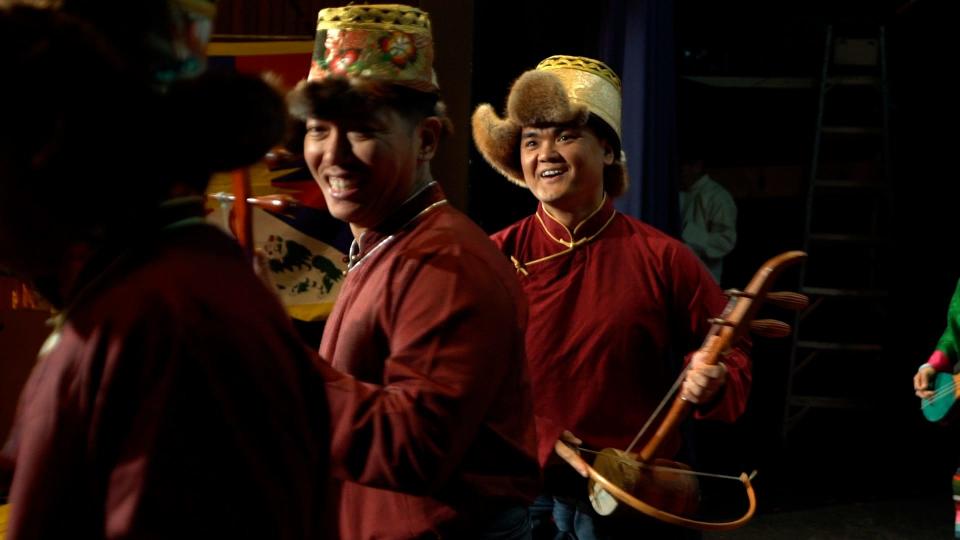
"It's like coming back to home almost," said Sonam Chophel, former president of the association.
Performers donned white-bearded masks and beautifully-adorned costumes for Tashi Sholpa, a traditional dance that welcomes high lamas and dignitaries, according to Chophel. Vendors sold Tibetan singing bowls, embroidered tapestries, and gemstone earrings. Dancers performed a traditional Kongpo dance, circling around the stage in unison to upbeat music.
"We are having this festival to show our culture and tradition to Vermonters, while at the same time, seek support for the Tibetan cause," Chophel said.
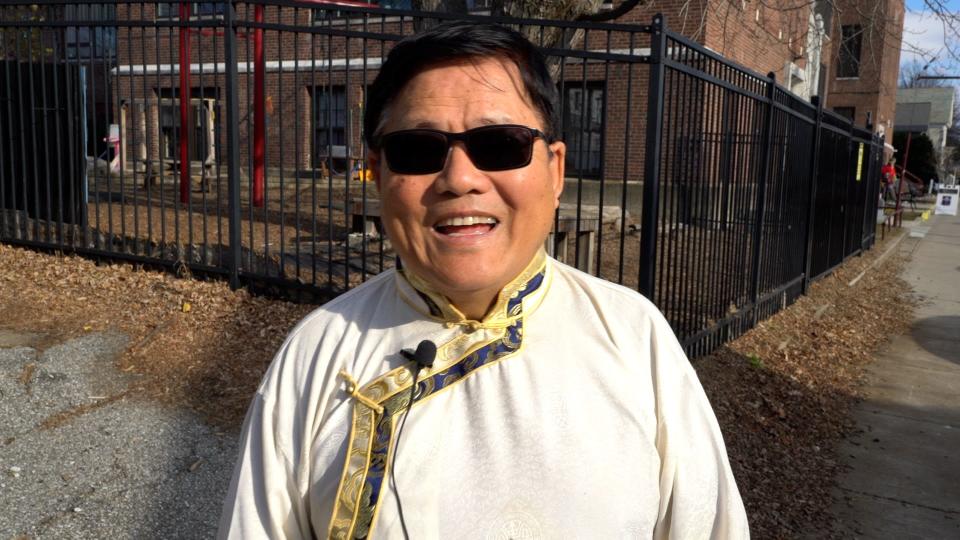
Origins of Vermont's Tibetan community
The first wave of Tibetans arrived in Burlington in 1993, thanks to the support of the U.S. Tibetan Resettlement Project, a national organization sympathetic to the political struggles faced by people in Tibet.
The project chose Burlington as one of its approximately 20 original resettlement sites "because of the human scale size of the community, and the belief in such traditional things as family and cooperative community development," executive director Edward Bednar said in a 1992 interview with CCTV.

The handful of initial arrivals to Burlington soon formed the Tibetan Association of Vermont. Today, there are about 150 Tibetan people in Burlington, and the association allows them to stay connected with each other, their culture, and the greater Tibetan diaspora, Chophel said.
"Our main focus is to preserve our culture and tradition," Chophel said, "at the same time, to highlight what is happening inside Tibet under this communist rule."
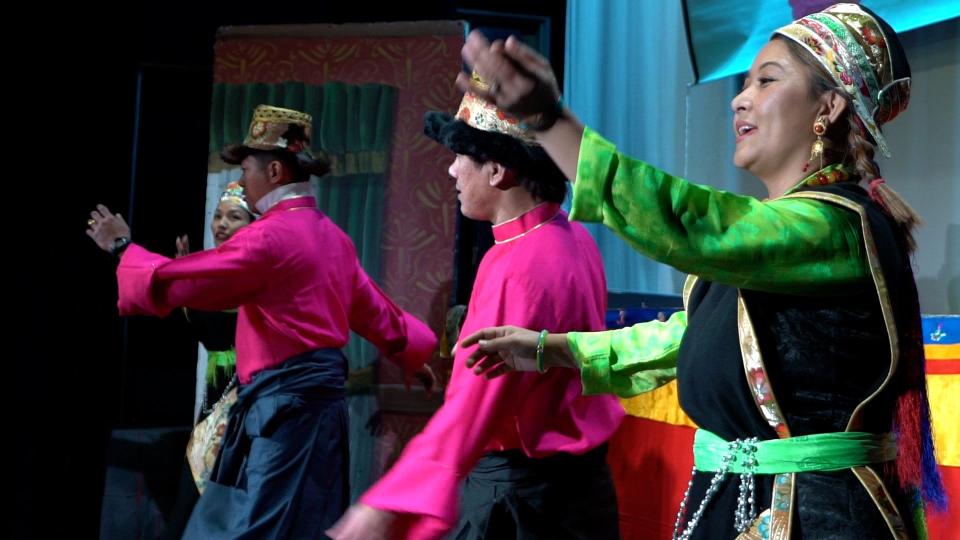
Refuge for Tibetans in Vermont
For centuries, Tibet has resisted domination by imperial powers, including the Mongol Empire, Qing Dynasty, and Great Britain. Tibet was independent for much of the first half of the 20th century, until it was annexed by the People's Republic of China in 1951.
In 1959, a mass uprising of Tibetans was crushed by Chinese troops, resulting in the deaths of about 87,000 Tibetans, 2,000 Chinese soldiers, and the exodus of about 100,000 Tibetans, according to the University of Central Arkansas. In the aftermath, the Dalai Lama and his supporters fled to India, where they established a government-in-exile that still operates today.

Today, Tibet is still a province of the Chinese government, which has used extrajudicial killings, arbitrary arrests, censorship, and restrictions on religious freedom to squash political dissent, according to a 2021 report by the U.S. State Department.
Chophel left Tibet when he was six years old. He first arrived in India, where he went to school and later worked for the Tibetan government-in-exile. In 1997, Chophel left India for Burlington under the U.S. Tibetan Resettlement Project, but he never forgot about the people of his homeland.
"There is a total violation of human rights inside Tibet by China," Chophel said. "So as a citizen of the United States, we want to ask our senators and congressmen to support us."
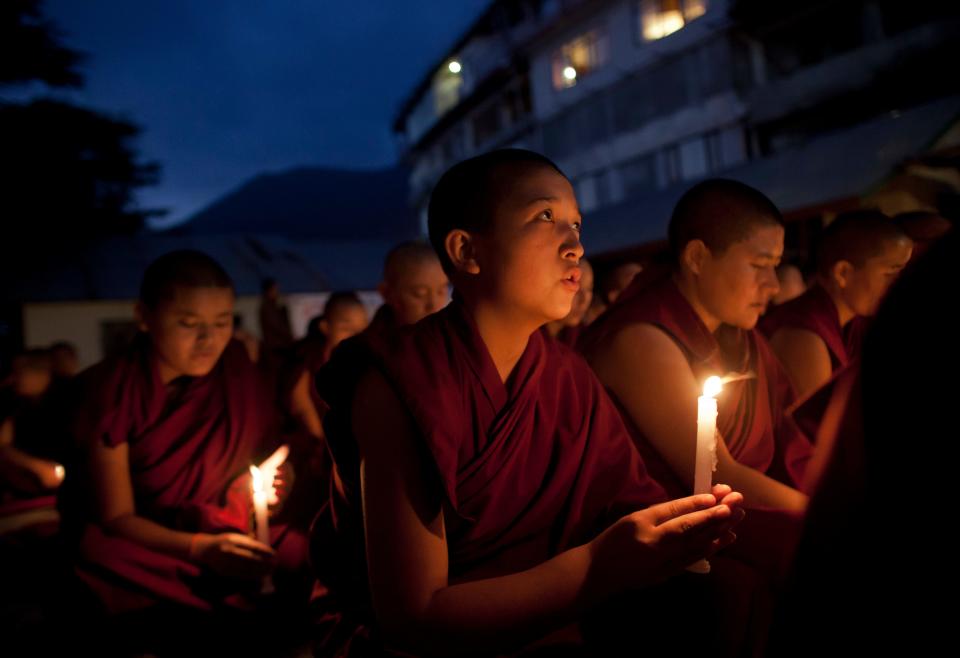
Carrying on Tibetan traditions in Burlington
Chophel sees his culture as under attack in his home country, which is partly why he considers it so important to carry on Tibetan traditions in Vermont.
Every Sunday, the Tibetan Association of Vermont hosts the Vermont Tibetan Community School at the O.N.E. Community Center, where students learn Tibetan language, culture, and moral principles.
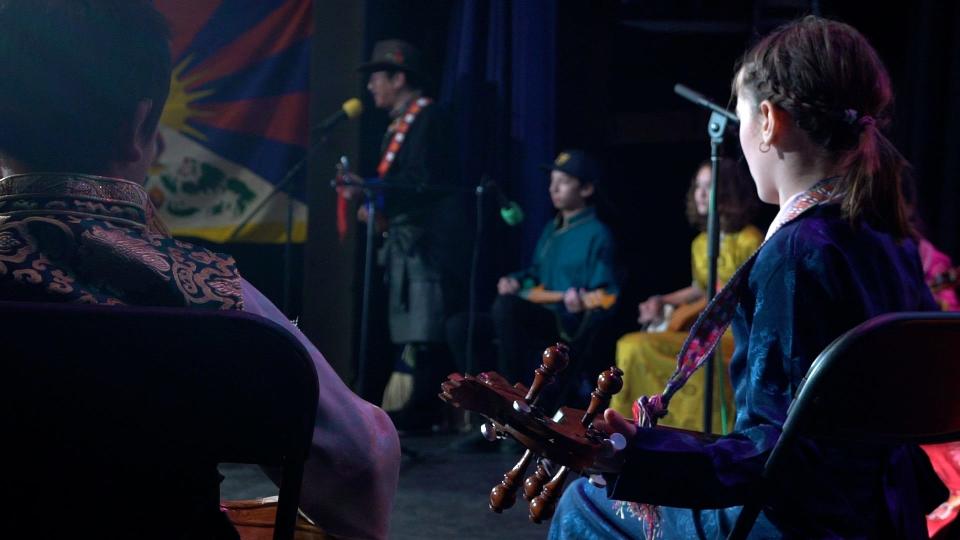
The school has been going strong since 2011, but Chophel has his sights set on one day having a full-fledged Tibetan Community Center in Vermont. The goals for the center are to have a dedicated place where Tibetans in Vermont can conduct prayers, celebrate holidays, pass on cultural traditions to Tibetan children, and educate the public about Tibet.
"We have been approaching many different NGO's," Chophel said, referring to non-governmental organizations, which often fund humanitarian causes. "So someday we may also have a culture center of our own here, and pass our culture and tradition to our young children, and at the same time share with the local Vermonters."
Contact April Fisher at amfisher@freepressmedia.com. Follow her on Twitter: @AMFisherMedia
This article originally appeared on Burlington Free Press: Tibetans in Vermont host festival and seek to build cultural center

